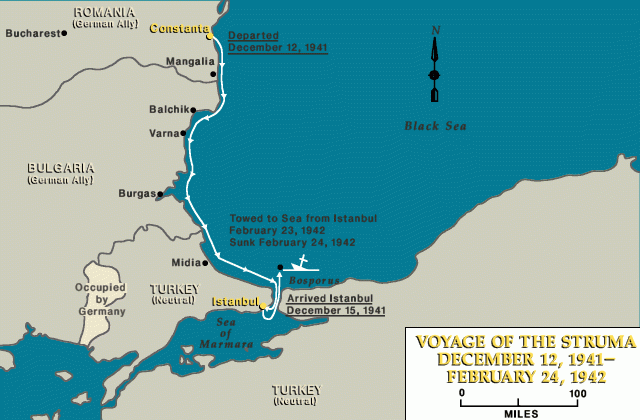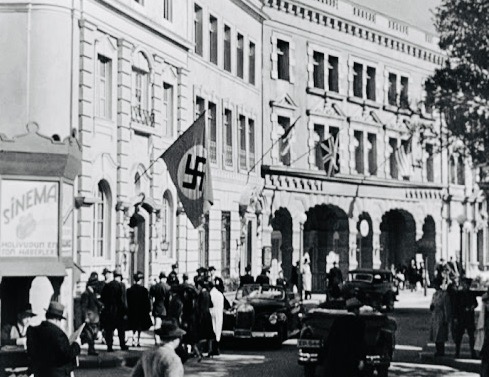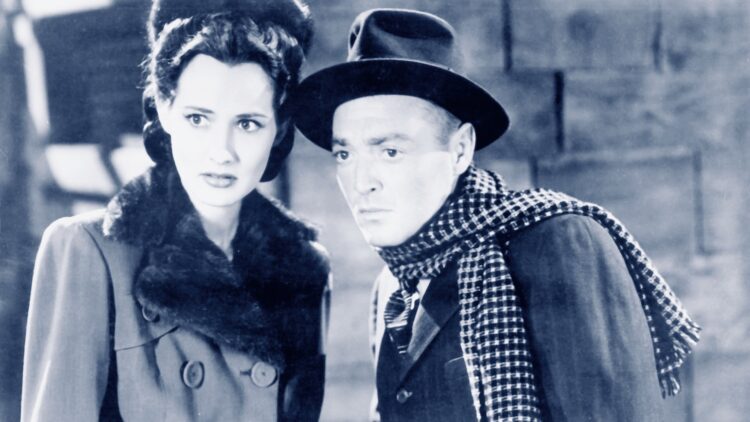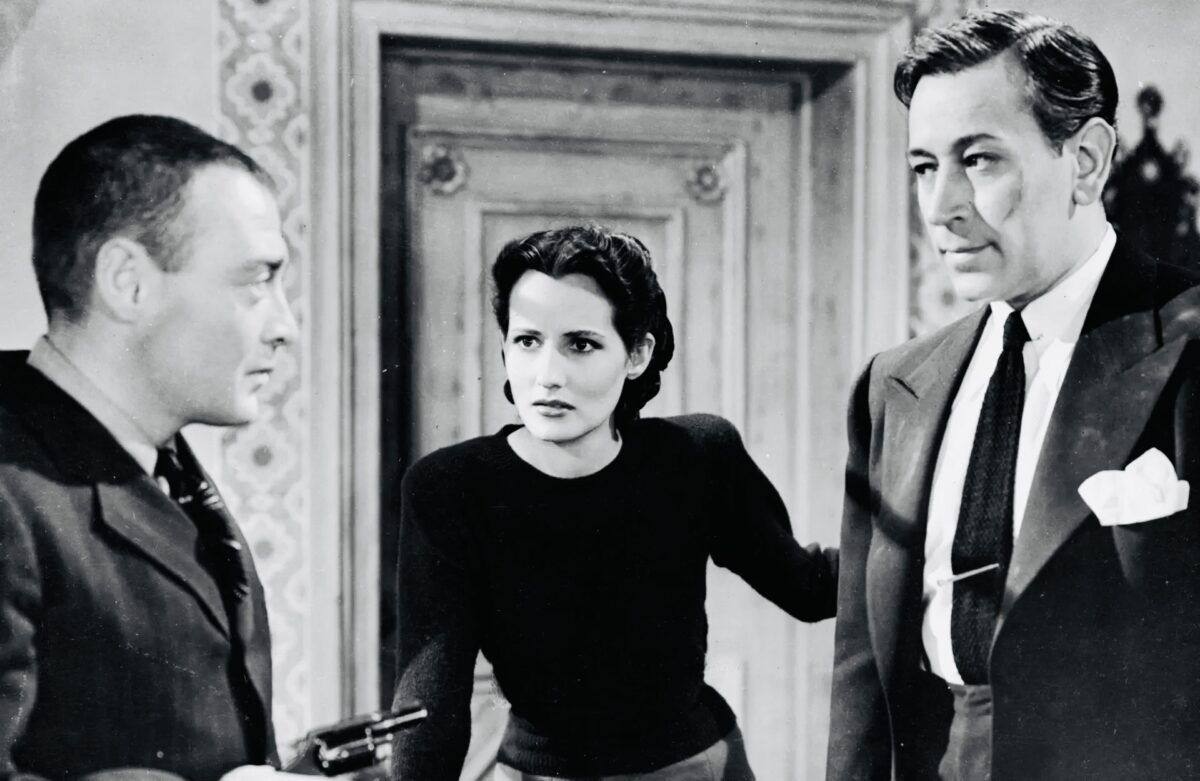Foreign intrigue suffuses Background To Danger, a 1943 Warner Bros. Pictures movie directed by Raoul Walsh. Recently screened on the Turner Classic Movies channel, this taut espionage thriller unfolds primarily in Turkey but also in Syria and Nazi Germany at the height of World War II.
Turkey, one of several neutral countries that stayed out of the war, is at its core. German agents, based in Ankara, are trying to concoct an incident that will inflame Turkish public opinion and drive Turkey to abandon neutrality and join the Axis cause. An American spy based in the Middle East tries to foil their nefarious geopolitical plot.
The film takes place in 1942, the year the Struma, a creaky Romanian ship filled with 800 Jewish refugees, set out from the port of Constanta en route to Palestine, a League of Nations Mandate administered by Britain.
The Struma, having experienced mechanical problems, pulled into Istanbul and was kept there in quarantine for a little more than two months. The Turkish government would not allow the passengers to disembark unless Britain issued an assurance that they would be permitted to proceed to Palestine.
Not having received one, the Turkish police towed the crammed vessel out to sea on February 23, 1942 and abandoned it to its fate. The following day, the Struma sank, with only one passenger surviving. Historians believe that it was mistakenly torpedoed by a Soviet submarine.

The shameful Struma incident goes unmentioned in the film, but Turkey’s status as a neutral power is highlighted. Turkey’s powerful neighbor, the Soviet Union, which was then fending off a massive German invasion, sought to preserve Turkey’s neutrality and keep it out of the war. Germany hoped that a compliant pro-Nazi government would emerge in Turkey that would do its bidding.
The movie, starring George Raft as the American spy Joe Barton and Sydney Greenstreet as the Nazi operative Colonel Robinson, gets underway as an explosion rocks the German embassy in Ankara. The blast, designed to assassinate Germany’s ambassador, is believed to have been engineered by the Soviet Union, a U.S. ally.

The scene shifts to Aleppo, a city in northern Syria close to the Turkish border, as Barton boards a train to Turkey. Persistent hawkers besiege him on the platform. Barton, who passes himself off as an oil production machinery salesman, shares a compartment with Ana Remzi (Osa Massen), an attractive European refugee who admires the United States. “You Americans are so wonderful,” she cooes.
During their conversation, Barton offers a glum assessment of global affairs. “The world isn’t like it used to be,” he says in a huge understatement. Confiding in him, she claims she is being followed by a man on the train. She then hands him an envelope.
The sense of unease that pervades the film never lets up, captivating a viewer.
Barton and Ana agree to meet in a hotel in Ankara. When he reaches her room, she is in dire need of medical assistance. Someone has shot or stabbed her.
Prior to leaving the hotel, Barton watches a stranger rummaging through Ana’s luggage. The person in question, Nicolai Zaleshoff (Peter Lorre), is a canny Soviet spy. He and his sister, Tamara (Brenda Marshall), work together as a team.
Barton is wary of Nicolai, but his suspicions wane after Nicolai saves him from the clutches of Colonel Robinson, who demands the envelope he received from Ana. It contains highly classified material outlining apparent Soviet plans to invade Turkey. If the colonel can get his hands on it, he can use this incriminating information to Germany’s benefit.

Brenda Marshall and Peter Lorre star in this thriller
As the film approaches its denouement, the colonel visits the editor of a pro-German Turkish newspaper who is willing to publish the explosive material on its front page and thereby advance Germany’s scheme to coop Turkey into a mutual alliance against the Allied powers.
Barton, having uncovered the colonel’s ploy, enters the newspaper’s composing room in a frantic effort to stop the publication of that day’s edition.
Background To Danger, which brims with gun play, uncomfortable encounters and car chases on hairpin roads, is reasonably plausible and fairly entertaining. The cast conforms to professional standards, though some of the situations in which they find themselves tend to be theatrical.
As wartime propaganda films go, this is probably one of the better ones to come out of Hollywood during this dark period.
